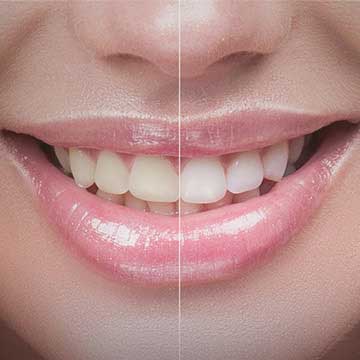Most of us are familiar with a visit to the dentist. Bi-annual dental care check-ups are part of maintaining healthy teeth. But what happens when there are problems beyond your regular dental routine? What type of doctor is best suited for unexpected changes in your teeth?
All dentists in Canada are educated and licensed to examine, diagnose, and make treatment recommendations for your dental health. There are different types of specialists that each focus on a specific area of dental care. Let’s discuss the differences between some common dental specialists, and when it’s best to consult them.
The Difference in Expertise
There are 9 recognized dental specialties in Canada, ranging from pediatric dentistry to radiology (x-rays). Your local dentist may also be accredited as any one of these specialties.
Endodontist
The stuff inside your tooth, that’s what endodontists examine and specialize in. Dental pulp is the tissue within an individual tooth that contains nerves and blood vessels, keeping the tooth alive. This is also the part of the tooth that sends signals of pain and discomfort. Endodontists are highly trained experts at managing this pain and removing this pulp when indicated, quite commonly with a root canal.
Of all licensed dentists, only about 3% are qualified endodontists. This type of accreditation requires an additional 2-3 years of education. As endodontic treatments occur more than 25 million times per year, this type of practice is considered safe and effective. Endodontists will perform a root canal after careful analysis of the affected tooth and after considering all possible solutions.
Prosthodontist
Prosthodontists are focused on the replacement, repair, and extensive restoration of your teeth and mouth. They specialize in using artificial replacements (prosthetics) to simulate missing or damaged teeth, or parts of the jaw. This type of expert can make decisions about substituting a broken tooth or using prosthetic technology to repair the original. Dental prosthetics include fillings, dentures, veneers, crowns, and bridges.
A prosthodontist’s expertise also includes the know-how to help manage jaw, neck, and back pain. Sleeping issues, like excessive snoring and irregular breathing, can also be remedied by this type of doctor. Prosthodontists must complete postdoctoral education to perform these types of procedures
Smile science is a big part of a prosthodontist’s skill set. By understanding oral comfort, function, and appearance, a prosthodontist can make decisions about how to improve your teeth and mouth. Many people use this type of dentist to replace dead teeth, to improve smile characteristics, and to boost confidence when they smile or speak.
Periodontist
A periodontist specializes in diagnosing, preventing, and treating oral diseases. This includes gingivitis and more developed gum disease (periodontitis), as well as conditions that affect bones in your mouth. Periodontists use techniques like gum grafts to halt negative progression and encourage new tissue growth. Crown lengthening will require a periodontist to access the tooth below the gum line so that restorative work can begin.
Periodontists in Canada require an extra 3 years of university education. They are specialized in understanding how to best treat the hard and soft tissues that support your teeth. If your gums are involved in an oral treatment, you will probably have a periodontist take a look.
Orthodontist
Orthodontists specialize in moving teeth and development of the jaws. An orthodontist will utilize many appliances as well as brackets or invisalign to provide patients with straight and beautiful teeth. On average Orthodontists spend an additional 3 years in school.
Pediatric Dentist
Pediatric Dentists focus on treating children. They will see children with medical conditions, various special needs or children with severe cavities. Pediatric dentists will utilize nitrous oxide, sedation and general anesthesia to complete treatment. On average Pediatric dentists spend an additional 3 years in school.
Oral Surgeon
Oral Surgeons specialize in dental trauma and tooth removal. They spend an additional 4-7 years completing their surgical training. They perform routine extractions including wisdom teeth. They also treat patients that have traumatic injuries as well as jaw surgery due to an unfavorable bite.
General Dentist
Like in any medical field, dentistry has a role for each type of doctor. A general dentist is best equipped as the first line of oral care. General dentists are educated in all aspects of dentistry and make decisions about what specialist to partner with, if necessary. Cooperation between your dentist and any of the aforementioned specialists is the best way to solve any serious dental issue.
Licensed dentists must graduate from an accredited dental program to practice in Canada. Dental school is typically 4-5 years of study dedicated to understanding the human mouth and teeth.
When Do I Need a Dental Specialist?
After a general dentist has performed an oral exam, they may recommend involving a specialist. Depending on the situation and severity, a specific dental expert will be consulted to provide further solutions. A specialist can also be involved when cosmetic dental work is being performed.
Tooth Pain
Chronic tooth pain, or discomfort associated with any part of the mouth, should be initially examined by a general dentist. If the pain is determined to be nerve-related it could signal the need for a root canal and an endodontist.
Signs you may require a root canal:
- Persistent pain in a specific area
- High sensitivity to hot & cold
- Tooth discolouration
- Pressure sensitivity
- Pain when eating
Sore Gums or Mouth
Sensitive gums are often the product of poor oral hygiene. You could be experiencing a bacterial infection known as periodontitis. Gingivitis and periodontitis are common oral conditions. Patients that have advanced periodontal disease that is severe may require care from a gum specialist, also known as a periodontist. Periodontists can correct severe cases of gum disease, but general dentists can identify the first stages of periodontitis.
Some symptoms of gingivitis/periodontitis include:
- Swollen or puffy gums
- Bleeding gums
- Receding gum line
- Discoloration of the gums to red or purple
- Very bad breath
Dental Trauma
When unexpected events cause significant damage to your teeth or jaw, it will require dental experts to get you back to full oral health. Endodontists, periodontists, prosthodontists and orthodontists may all be involved in the correction process following surgery. Replacing teeth, fixing jawbones, and managing damaged gums, all have their need for a specific dental specialist.
Cosmetic Needs
When improving the aesthetics of your teeth and smile, it’s best to have an oral architect. Prosthodontists are trained in guiding you through the cosmetic process and making changes to your teeth. Cosmetic procedures may follow trauma and surgery, or be a solution for increasing confidence.
Some common cosmetic services performed by specialists:
- Veneers
- Dental implants
- Teeth whitening
- Colour matching
- Dentures
Holistic Dental Harmony
A General Dentist is Your First Step
Getting the right treatment always starts with an assessment from your general dentist. They are the doctor most familiar with your dental health, and any changes in your teeth. A general dentist makes decisions about what direction to take, and what specialist to involve – kind of like a quarterback who surveys the field and calls the play.
Also know that a general dentist can be certified in any of the dental specialties. This means potentially fewer doctor visits if your regular dentist has the expertise to help you. A general dentist is your primary care provider for all health matters concerning your mouth and teeth. Not to mention, most specialists require a referral from a general dentist to begin examining a new patient.
The Right Doctor for The Right Job
Everyone’s dental health is unique and requires a specific combination of dentistry professionals. Recognizing the difference between endodontists, prosthodontists, periodontists and other specialties will help you better understand visits to the dentist. Your general dentist will assess what needs to be done and recommend further treatment from a specialist.
Whether you want to improve that lovely smile or get rid of nagging tooth pain, remember that dentists and specialists will work together to make you feel and look great!









